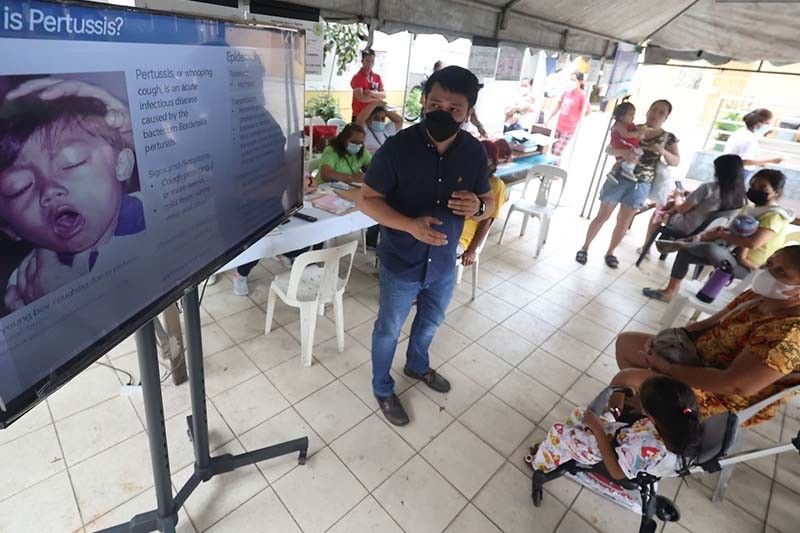Infants under six months most affected by pertussis — DOH

MANILA, Philippines — Six out of 10 cases of pertussis in the country this year were infants under six months old, the Department of Health (DOH) said on Wednesday.
Latest data from the DOH showed there were 28 new pertussis infections, bringing this year’s total cases to 568. Of the figure, around 63% were infants below six months.
Three out of four, or about 76%, of these infants were either unvaccinated or had an unknown immunization history.
The DOH said that around 68% of the total pertussis cases involved unvaccinated individuals or those with unknown vaccination status.
Forty pertussis deaths have been reported. The DOH said the total number of cases for the same period in 2023 was only 26, making this year’s tally to date over 20 times higher than last year’s.
The areas with the most local government units reporting cases increases were Calabarzon, Metro Manila, Western Visayas, Mimaropa and Central Visayas. The capital region accounted for 27% of the confirmed cases.
“On a biweekly basis, the number of new pertussis cases did rise from the weeks of February 4 and 11 (122 cases) to the weeks of February 18 and 25 (149 cases). This has gone down to only 73 new cases in the weeks of March 3 and 10,” DOH said.
“While this may show an improvement, the DOH is cautious in interpreting the trend as the number of cases may still change as there may be late consultations and reports,” she added.
According to the World Health Organization (WHO), pertussis, also known as whooping cough, spreads easily through droplets produced by coughing or sneezing. Pertussis is especially dangerous in infants, causing flu-like symptoms and a characteristic hacking cough.
Treatment, prevention
Pertussis is a vaccine-preventable disease. As of March 25, there are 64,400 doses of pentavalent vaccines in the country. The DOH is expecting three million pentavalent doses “at the soonest possible time.”
Aside from pertussis, the five-in-one combination jab also protects against diphtheria, tetanus, hepatitis B, haemophilus influenzae type b.
According to the DOH, infants as young as six weeks old may be given this vaccine for free at government health centers.
Children from one to six years old may get a booster dose, while older children and adults are advised to consult a doctor for advice on the appropriate vaccine.
The health department said that pregnant women can inquire about the Tdap vaccine (tetanus, diphtheria and acellular pertussis), which protects their soon-to-be-born babies against whooping cough.
The DOH also said that antibiotics are available and effective against the bacteria that causes pertussis.
“Depending on the antibiotic used and the age and condition of the patient, treatment may run from 4 to 14 days. It is important to consult a doctor and use antibiotics only as prescribed,” the agency said.
“Do not self-medicate, and always complete the number of days,” it added.
- Latest
- Trending

































